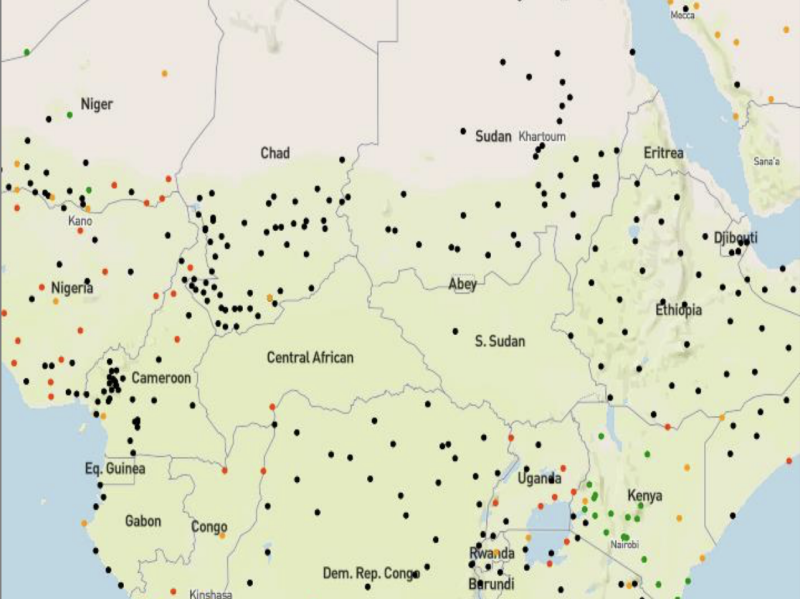

With a great variety of landscapes, Chad is a landlocked country nestled in the heart of Africa, characterised by diverse landscapes ranging from arid desert to subtropical zones. However, this geographical diversity also makes it particularly vulnerable to extreme weather events.
Throughout the years, Chad has experienced severe consequences of intense drought in the eastern and central east areas -the agricultural backbone of the country- where the bulk of Chad’s food production takes place. Unfortunately, the country is also subject to extreme rainfall. According to Abdel-Lathif Younous, Anticipation Action and Early Warning System Officer at World Food Programme (WFP) “the floods of 2022 forced the government to declare state of emergency for malnutrition.” That year, floods affected 1 million people and destroyed 465,030 hectares of farmland (UNICEF).
These compounding climate shocks are not only eroding the country’s food security but also creating a wider social and economic crisis. As climate instability significantly weakens crops and ravages lands, these losses can set off a chain reaction of food shortages, leaving the population in extreme vulnerability. Additionally, the influx of refugees from neighboring Sudan might strain the local communities’ capacity to respond, highlighting the intersection of climate risks and humanitarian crises in fragile settings.
“People of Chad are among the most affected by the global climate crisis and face one of the highest levels of hunger in the world.” World Food Programme
“Act In Anticipation Of Crises Rather Than In Response To Crises.” Hagar Ibrahim, Head Of Research Assessment And Monitoring Unit, WFP
Weather observations are the foundation on which all forecast products rely, from daily weather forecasts and long-term climate analyses to early warning systems that protect those living on the frontlines of the climate crisis.
Without this data, National Meteorological Offices are unable to make skillful predictions of future weather and climate. It limits their ability to support communities to adapt and mitigate the impacts of changing weather patterns, and it reduces the effectiveness of global weather models that governments worldwide rely on.
Today, only 50% of countries worldwide report having adequate multi-hazard early warning systems. Additionally, only 9% of the internationally mandated basic weather and climate data are available from Least Developed Countries and Small Island Developing States (WMO State of the Global Climate 2023 report).
With only one surface-land weather station and no upper air station – radiosonde attached to free-rising ballons to make observations in the atmosphere- reporting to international standards across Chad’s territory. It is necessary to implement or upgrade at least 34 new stations (32 surface and 2 upper air) for Chad to reach GBON compliance.
This international agreement clearly defines for the first time the minimum set of weather and climate data that all countries must internationally exchange; it is a mandatory requirement for all countries since January 2023. Currently, Chad is reporting 0% (upper-air) to 3% (surface) of mandated GBON data only. “GBON compliance is integral to the value chain of weather and climate services. We are confident that this joint effort will contribute to the Chaddian society in both the short and long terms”says Dr. Andreas Schaffhauser, Scientific Director General of GeoSphere Austria.
Ongoing SOFF investments in Chad are supporting the Meteorological Office of Chad, Agence Nationale de la Métérorologie (ANAM), in collaboration with the World Food Programme (WFP) serving as the SOFF Implementing Entity and GeoSphere Austria, Austria’s national meteorological service, providing hands-on techncial assistance. “Our main partner is the National Meteorological Service. We work very closely with them; it is really important for WFP as we are building national capacities for public good. Our work is a gradual process, it is about supporting the government throughout the way, with a lot of capacity strengthening on the technical part, on the requirements and on the use of the data,” says Hagar Ibrahim.
To read the full article, please head over to its original place of publishing un-soff.org